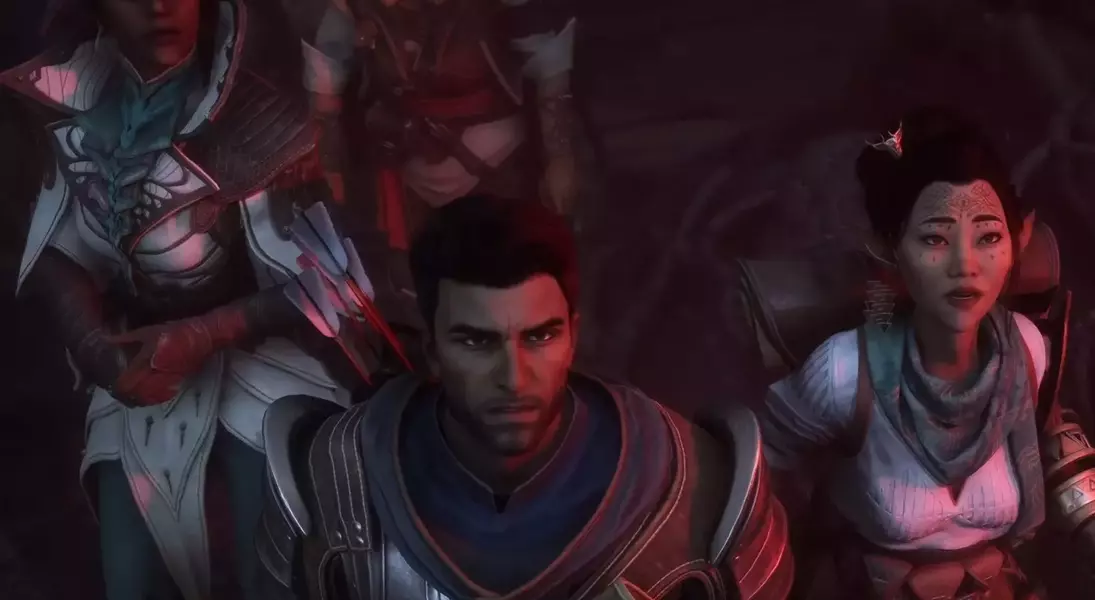
Discover the Untold Story Behind Dragon Age's Latest Chapter
Unveiling the Challenges Faced by The Veilguard
The fantasy RPG "The Veilguard" initially aimed to captivate a broad audience but failed to resonate as anticipated. With only half the expected player base, EA found itself grappling with financial setbacks. This disappointment wasn't isolated; another major miss for the quarter came from EA Sports FC 25. However, unlike "The Veilguard," the sports title didn’t face severe repercussions. CEO Andrew Wilson attributed the failure to the lack of live-service elements, a shift that occurred after BioWare successfully argued for a single-player focus following Anthem's troubled rework.
BioWare’s pivot from a multiplayer-centric design to a single-player experience was seen as an impressive feat by many within the studio. Yet, the transition came at a cost. Resources allocated to "The Veilguard" were significantly less compared to EA’s sports titles, leading to questions about the support given to the franchise. The game’s development history reveals a complex journey, highlighting the challenges of balancing publisher demands with creative vision.
Comparing Sales and Market Reception Across Dragon Age Titles
Looking back at previous Dragon Age games, "The Veilguard" stands out for its middling sales. "Dragon Age: Origins" sold 3.2 million copies within months, while "Dragon Age II" surpassed two million units in just two months. The standout performer remains "Dragon Age: Inquisition," which achieved over 12 million sales in a decade. This success can be attributed to its release alongside new consoles like the PlayStation 4 and Xbox One, coupled with a robust marketing campaign. By contrast, "The Veilguard" lacked these advantages, making it difficult to replicate Inquisition’s triumph.
Sales figures are crucial for publishers like EA, yet they don’t tell the whole story. The timing of "The Veilguard" launch, coming so soon after its predecessor, may have impacted its performance. Additionally, the evolving market dynamics favor games with sustained engagement, something "The Veilguard" couldn’t fully capitalize on. Understanding these factors is essential to grasping why the game struggled to meet expectations.
Single-Player vs. Live-Service: A Balancing Act
Publishers often prioritize live-service games for their continuous revenue streams. However, sacrificing single-player experiences has proven to be a risky strategy. While titles like Fortnite and Grand Theft Auto Online thrive on ongoing updates, many live-service games have faltered. From MultiVersus and Resident Evil Re: Verse to Blue Protocol and Marvel’s Avengers, numerous projects have been shelved or shut down. These failures underscore the volatility of live-service models, where player retention and post-launch content are critical.
Single-player games, on the other hand, offer reliability and longevity. They tend to grow in recognition over time, becoming cherished classics. Games like Batman: Arkham Knight and Assassin’s Creed IV have seen renewed interest as players seek quality narratives and characters. The enduring appeal of "Inquisition" demonstrates how strong storytelling can drive long-term success. Publishers must recognize the value of single-player titles, especially when they come from studios known for crafting compelling worlds and stories.
EA's Strategic Direction and BioWare's Role
As EA charts its future, the role of BioWare becomes increasingly pivotal. The studio’s expertise in narrative-driven RPGs is unparalleled, making it a valuable asset for franchises like Mass Effect and Dragon Age. Attempting to dominate competitive markets, such as first-person shooters, has proven challenging for EA. Pulling resources from multiple studios to develop a Battlefield capable of rivaling Call of Duty highlights the complexity of these endeavors. Instead, leveraging BioWare’s strengths in single-player experiences could yield better results.
While adding multiplayer elements to future titles isn’t off the table, it shouldn’t overshadow the core strengths of the studio. Mass Effect’s co-op mode has shown promise, but it should complement rather than define the game. Allowing developers to focus on what they do best ensures continued innovation and excellence. Studios like Larian and Capcom have thrived by embracing their unique capabilities, a lesson EA would do well to heed. The future of Dragon Age rests on finding this balance, ensuring the franchise remains a cornerstone of BioWare’s legacy.
